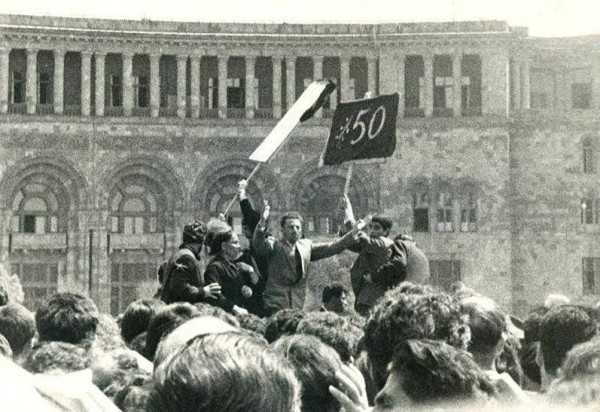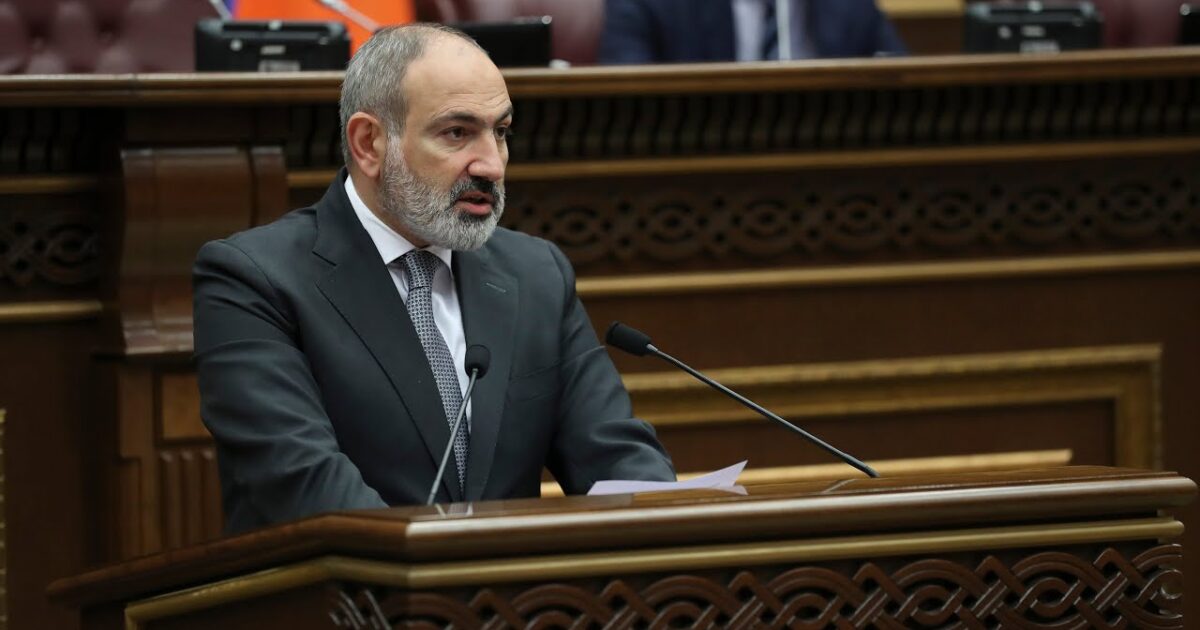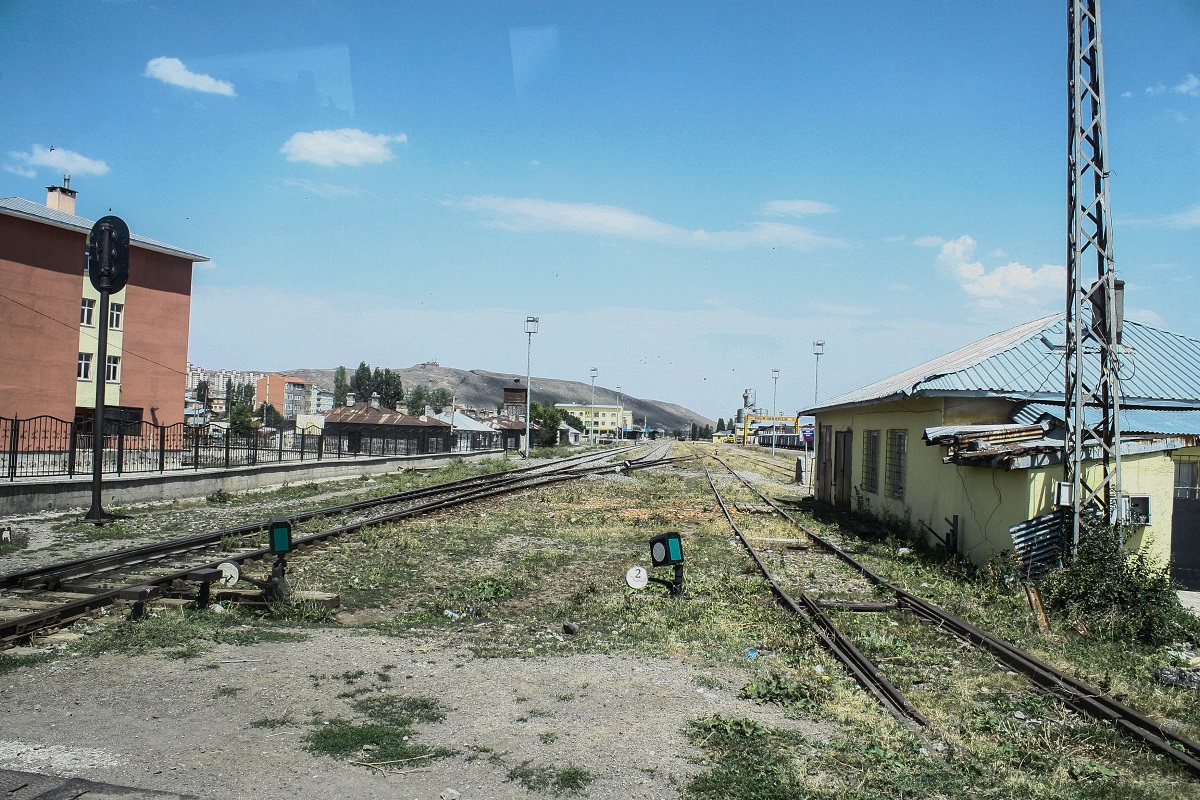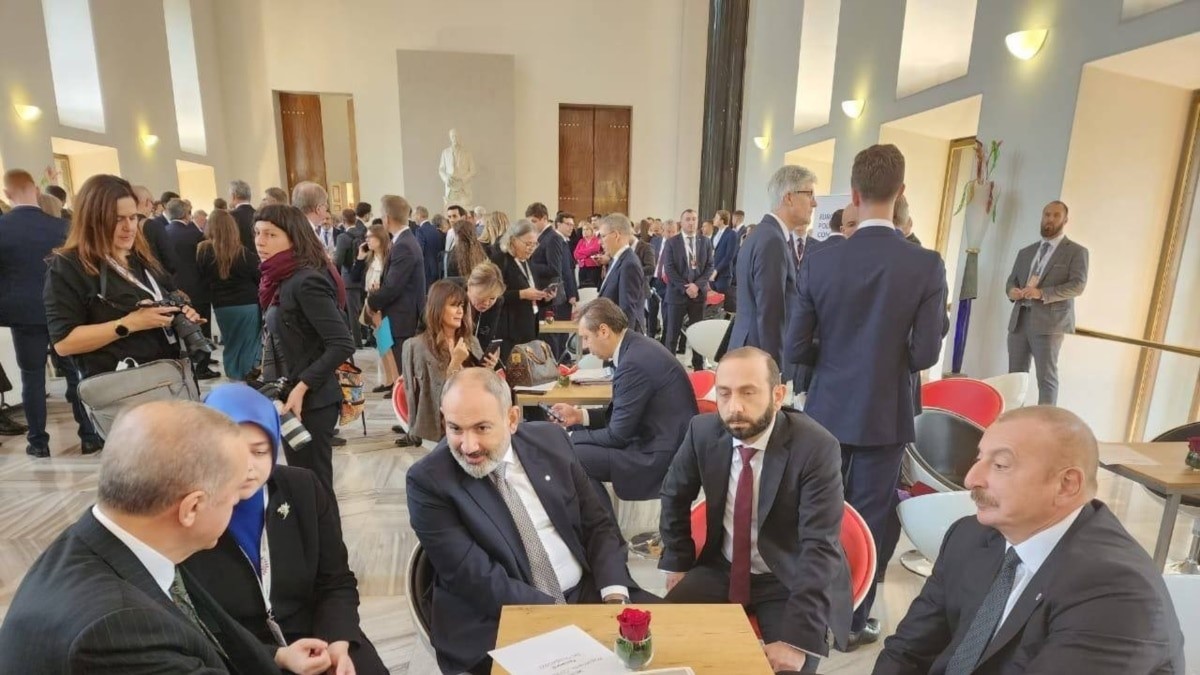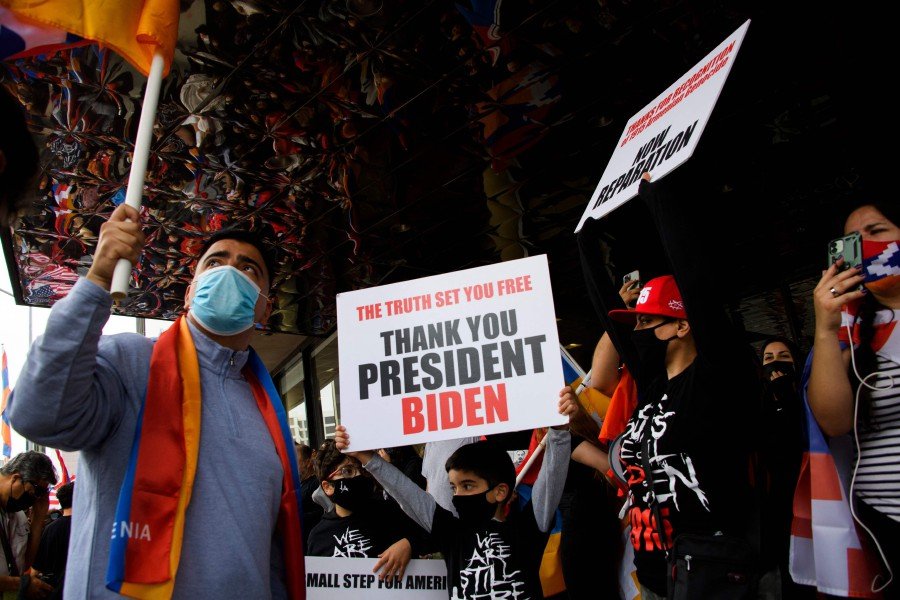Opinion: 'Armenian authorities should not refrain from recognizing Armenian Genocide'
Armenian genocide 109th anniversary
The new geopolitical situation dictates new conditions for smal countries to advance their policies, prompting shifts in their strategies. In Armenia, the recognition of the Armenian Genocide in the early 20th century has always been a priority for all governments since the country’s separation from the USSR.
April 24th marks the official Day of Remembrance for the genocide victims in Armenia. The Armenian Genocide was a mass slaughter in the Ottoman Empire in 1915. Before that, approximately two and a half million Armenians lived in the Ottoman Empire. As a result of killings and mass deportations, more than half of them perished. Armenia, along with several Western countries and organizations, officially recognizes these events as genocide. Turkey categorically rejects such phrasing.
The Declaration of Independence of Armenia speaks of “restoring historical justice.” It declares that “the Republic of Armenia advocates for international recognition of the Armenian Genocide of 1915 in the Ottoman Empire and Western Armenia.”
However, recently, Armenian prime minister Nikol Pashinyan has begun to speak about the advisability of amending and editing the declaration. He has also expressed the opinion of the necessity of “separating historical Armenia from reality.” In society, these proposals have not found support and have even sparked outrage. Many residents of the country and experts believe that the prime minister is “proposing to abandon the past under external pressure.” This refers, in particular, to pressure from Turkey.
Meanwhile, Turkish president Erdogan recently told journalists: “A new order is being established in the region. It is time to cast off groundless memories. It is better to act based on the realities of the present. Now Pashinyan also understands this. It is time to create new roadmaps based on reality. I hope Armenia will rid itself of the darkness into which its diaspora has dragged it and will choose the path of a new beginning towards a bright future.”
Armenian analysts believe that by conceding to this demand, the country’s authorities “lose leverage against an unfriendly neighbor that could have been used during negotiations.“
Experts Suren Manukyan and Gurgen Simonyan share their opinions on how geopolitical changes influence the country’s policy regarding the genocide issue.
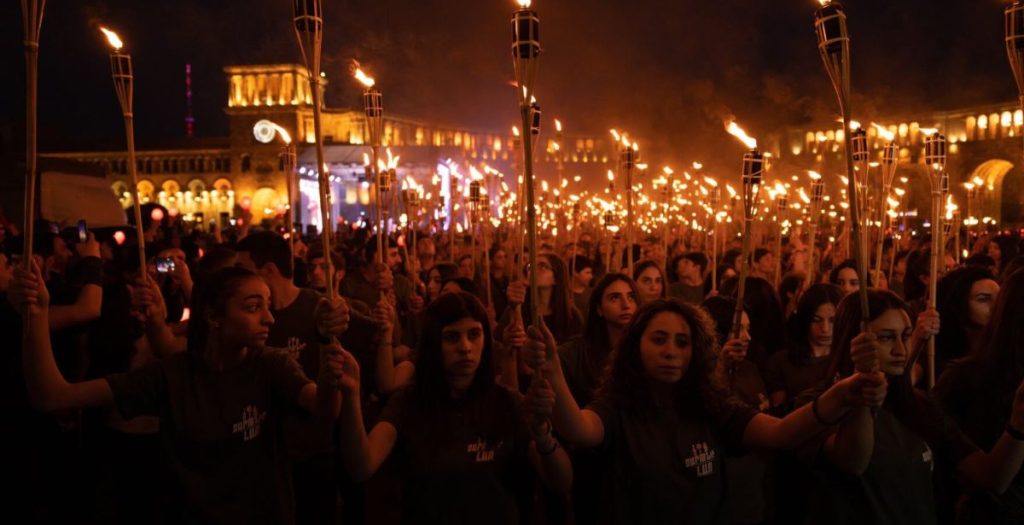
- “Armenia did not decide to align itself with the West just today,” – Pashinyan to British media
- Is Armenia making unilateral concessions? Yerevan and Baku agree on border delimitation
- Armenian billionaire has started a hunger strike in an Azerbaijani prison
Suren Manukyan, expert on genocide issues, orientalist
The change in policy regarding the Armenian Genocide
“The Armenian government’s policy on recognizing the Armenian Genocide in the Ottoman Empire shifted not today, but in 2018 when the government of Nikol Pashinyan came to power. The issue of the Armenian Genocide is not a priority for this government.
Previous authorities, lacking significant legitimacy, filled their gaps with the issue of recognizing the Armenian Genocide.
However, they also understood how important this issue was for Armenia. They realized that it could serve as an additional lever of pressure on some countries in international politics. Primarily, on Turkey.
With the topic of the Armenian Genocide on the international stage, Turkey will always restrain its aggression towards Armenia. It will constantly be reminded of the crimes committed 100 years ago.
The current authorities replaced the issue of recognizing the Armenian Genocide with the theme of democratic and revolutionary Armenia.
Now, alongside the Armenian Genocide in the Ottoman Empire, there is also the issue of ethnic cleansing of Armenians in Nagorno-Karabakh. Many international organizations and experts classify the events in Nagorno-Karabakh as genocide. However, the current Armenian authorities do not raise this issue, considering geopolitical changes and possible threats from neighboring countries. They fear a harsh reaction from Azerbaijan and Turkey.
The current authorities pursue a policy of appeasing neighbors at any cost.”
They won’t officially retract their recognition of the genocide
“Armenian authorities certainly won’t officially disavow the Armenian Genocide. However, they won’t actively engage in the international arena or give the issue significant attention.
At the same time, the ruling team is gearing up for the upcoming 2025 elections. They need to attract voters and boost the party’s ratings.
Within the team, there’s an understanding that renouncing the recognition of the genocide would be misunderstood by voters. After all, many of them are descendants of genocide survivors, and the memory of their lost homeland is still very much alive in each of these families.”
The Armenian Genocide is more than just an Armenian issue
“The Armenian Genocide is not a localized Armenian topic; it is a matter of universal human concern. Every country has an obligation to prevent such atrocities, including Armenia.
Regardless of where and with whom genocide occurs, Armenia, like all countries that have signed the Convention on the Prevention and Punishment of the Crime of Genocide and as a member of the Responsibility to Protect program since 2005, is obligated to do everything possible to prevent crimes against humanity.
The policy of recognizing the Armenian Genocide is aimed at preventing similar crimes.”
Armenia has renounced its obligations
“In this sense, Armenia has renounced its obligations to the Armenians of Karabakh. It has failed to protect its compatriots, citing that the territory is recognized as Azerbaijani, and intervention would mean a breach of international agreements.
In reality, this statement is deceptive. Because every country not only can but is obligated to intervene anywhere on the globe if there is a risk of genocide, up to the deployment of troops.
The Responsibility to Protect doctrine states that if a country is unable to protect minorities on its territory, subjecting them to persecution or armed attack, another country is obligated to take action and halt the process.
In addition to deploying troops, any country can at any time raise the issue of protecting Armenians in Nagorno-Karabakh, even resorting to appealing to the International Court for justice. Even if Armenia has declined to do so.”
Gurgen Simonyan, political analyst
The importance of protecting national interests
“The Armenian Genocide in the Ottoman Empire cannot be linked to any geopolitical shifts, whether it’s the geopolitical interests of states or the overall geopolitical situation. Nothing should hinder the defense of national interests, the demand for justice for the Armenian people, and the condemnation of this crime.
However, there has been a shift in the perception of realities within the Armenian authorities.
I consider such an approach to the issue adventurous. Armenia’s policy of demanding recognition of the genocide should not be halted or restricted in any way.
Talks suggesting that this policy could negatively impact our region are a false agenda.
Furthermore, it is also a lever of influence on Turkey. It is a mechanism to restrain Turkish ambitions, which could adversely affect peace and stability in the region.
To renounce such levers is simply unacceptable. Genocide is a crime against humanity, it has no statute of limitations. The party that committed this act or its successor must be held accountable.”
Armenian authorities under pressure
The current authorities are evidently constantly making concessions under pressure from Russia, Turkey, and Azerbaijan. However, issues such as renouncing the demand for recognition of the genocide, or historical memory, cannot be resolved overnight. It may take years.
With their current actions, including the surrender of territories to Azerbaijan, which ended up within Soviet Azerbaijan’s borders solely due to the Soviet authorities’ decision, the Armenian authorities are squandering their resources and jeopardizing their chances of reelection in the upcoming elections.”










